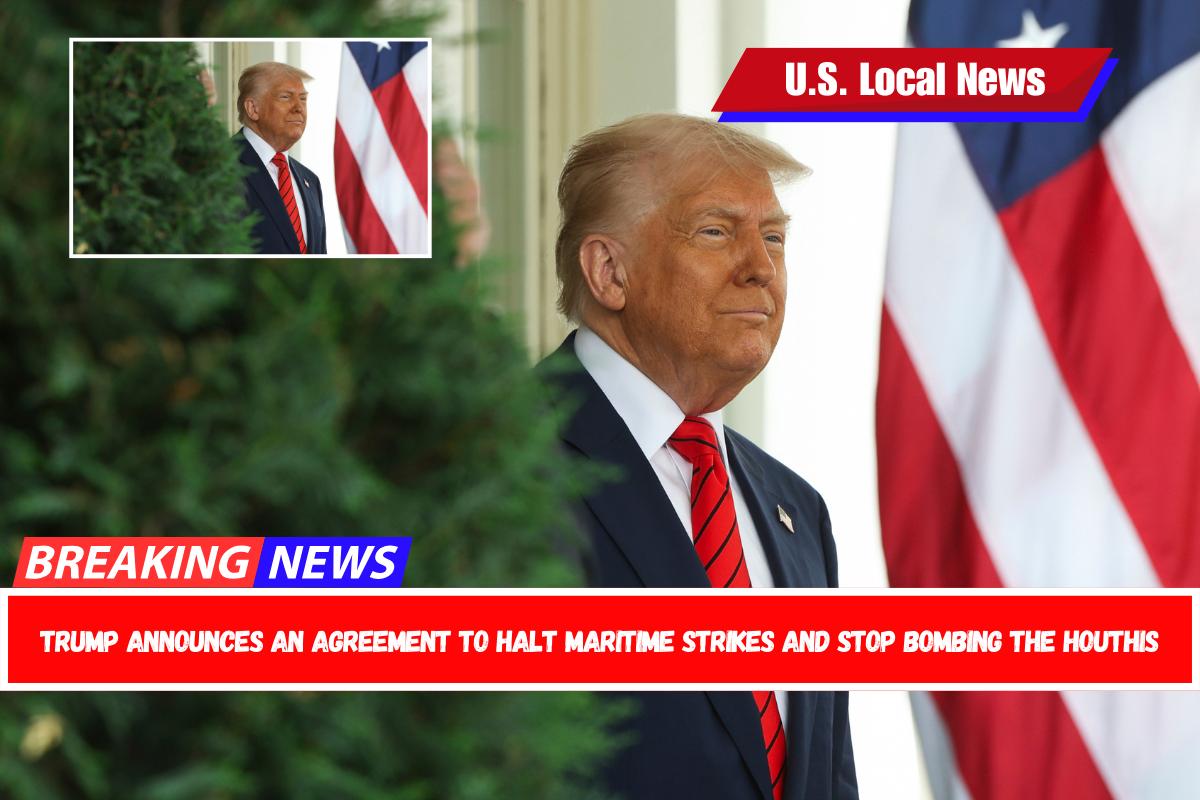WASHINGTON – On Tuesday, President Donald Trump announced that the United States would stop bombing the Houthis in Yemen, claiming that the Iran-aligned group had agreed to stop disrupting important Middle Eastern shipping lanes.
Following Trump’s announcement, Oman stated that it had mediated the cease-fire agreement, indicating a significant shift in Houthi policy since Israel’s war in Gaza began in October 2023.
According to Oman, the agreement states that neither the US nor the Houthis will target each other, including US vessels in the Red Sea and the Bab al-Mandab Strait.
Oman’s statement made no mention of whether the Houthis had agreed to stop attacking Israel. Mahdi al-Mashat, the head of Yemen’s Houthi Supreme Political Council, has stated that the group will continue to support Gaza and that such attacks will continue.
“To all Zionists from now on, stay in shelters or leave your countries immediately because your failed government will not be able to protect you after today,” he said, according to Houthi-run Al Masirah TV.
Separately, Mohammed Ali al-Houthi, the head of Yemen’s Houthi supreme revolutionary committee, stated that the United States’ cessation of “aggression” against Yemen would be evaluated, according to a post on X.
To put an end to attacks on Red Sea shipping, the United States increased its strikes on Yemen’s Iran-backed Houthis this year. Rights activists have expressed concern about civilian casualties.
“They said, please do not bomb us anymore, and we are not going to attack your ships,” Trump said of the Houthis during an Oval Office meeting with Canadian Prime Minister Mark Carney. “And I will accept their word, and we are going to stop the bombing of the Houthis effective immediately.”
On Tuesday, Qatar and Kuwait issued separate statements welcoming the ceasefire agreement, expressing hope that it will help to ensure freedom of navigation.
The Houthis have been firing at Israel and ships in the Red Sea since Israel launched its military offensive against Hamas in Gaza following the Palestinian militant group’s deadly attack on Israel on October 7, 2023.
Since the start of its current operation in Yemen, known as Operation Rough Rider, on March 15, the US military has claimed to have hit over 1,000 targets. The US military claimed that the strikes had killed “hundreds of Houthi fighters and numerous Houthi leaders.”
Houthi, Israeli Strikes
Tensions have been high since the beginning of the Gaza war, but they have risen even more since a Houthi missile landed near Israel’s Ben Gurion Airport on Sunday, prompting Israeli airstrikes on Yemen’s Hodeidah port on Monday.
On Tuesday, the Israeli military launched an airstrike on Yemen’s main airport in Sanaa, its second attack in two days on Iran-aligned Houthi rebels following a rise in tensions between the two sides.
Under former President Joe Biden’s administration, the United States and Britain retaliated with air strikes on Houthi targets in an effort to keep the critical Red Sea trading route open, which accounts for approximately 15% of global shipping traffic.
Trump did not say if Britain had also agreed to the ceasefire.
After becoming president of the United States in January, Trump decided to significantly increase air strikes against the Houthis. The campaign began after the Houthis announced that they would resume attacks on Israeli ships passing through the Red and Arabian Seas, the Bab al-Mandab Strait, and the Gulf of Aden.
On April 28, a suspected US airstrike struck a migrant center in Yemen, killing 68 people, according to Houthi TV.










